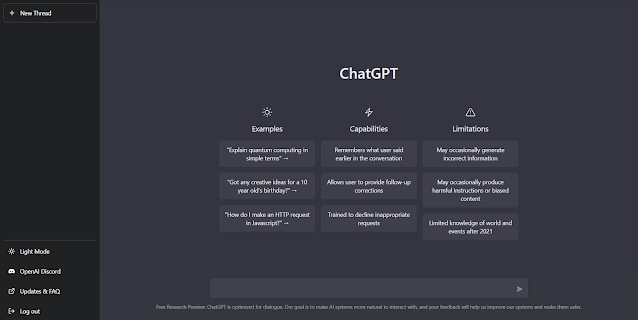ChatGPT is a variant of the GPT (Generative Pre-training Transformer) language model developed by OpenAI. It is specifically designed for conversational language generation tasks such as response generation in a chatbot or dialogue system. It is trained on a large dataset of conversational interactions and is able to generate human-like responses to a wide variety of inputs.
Who invented ChatGPT?
ChatGPT is developed by OpenAI. The GPT-3 model which ChatGPT based on, was developed by a team of researchers and engineers at OpenAI, a private research company founded by Elon Musk, Sam Altman, Greg Brockman and Ilya Sutskever among others. This group of people created OpenAI with the goal of developing and promoting friendly AI in a responsible way.
What purpose does ChatGPT Solve in Market?
ChatGPT and other conversational AI models like it are designed to make it easier to build chatbots and other conversational systems. By pre-training the model on a large dataset of conversational interactions, ChatGPT can generate human-like responses to a wide variety of inputs, making it useful for tasks such as:
Responding to customer queries in customer service chatbots
Helping users to navigate a website or an application in a conversational interface
Generating human-like dialogue in virtual assistants
Answering questions in virtual agents
Responding to users in social media apps
Creating automated conversation in the game and other entertainment industry.
Additionally, due to its large capacity and ability to generate very human like text, it's also being used in various creative and content generation tasks like generating product descriptions, articles and so on.
How many AI tools are in the market reval of ChatGPT?
There are a number of AI tools available in the market for natural language processing (NLP) and conversational AI that are similar to ChatGPT. Some of these include:
GPT-2: A predecessor of ChatGPT model, also developed by OpenAI, which has similar capabilities but on a smaller scale.
BERT: A model developed by Google that is designed for a wide range of NLP tasks, including question answering and sentiment analysis.
Transformer-XL: An extension of the transformer architecture that is able to handle longer-term dependencies in language.
XLNet: An improvement of the transformer-XL, which has been shown to perform better on some NLP tasks.
T5: An AI model developed by Google Research in 2020, capable of completing any natural language task.
ALBERT: A lite version of BERT, developed to use less memory and run faster.
These are just a few examples of the many AI tools that are available for NLP and conversational AI, as the field is constantly evolving and new models are being developed all the time.
Each model usually has its own advantages and disadvantages in performance, computation cost, and specific usage, so it's important to select the appropriate model based on the task you're trying to solve.
Can is it End of Digital Market With Use of ChatGPT in Market?
It is unlikely that the use of ChatGPT or other conversational AI models in the market will mark the end of digital marketing. While ChatGPT and similar models are capable of generating human-like text and can be used to automate certain aspects of digital marketing, such as responding to customer queries or generating product descriptions, there are still many other aspects of digital marketing that require human expertise and creativity.
For example, effective digital marketing also requires a deep understanding of the target audience, their needs and pain points, as well as the ability to create engaging and relevant content. Digital marketing also involves using data to track and analyze the performance of campaigns, and then making data-driven decisions to optimize them.
In addition, ChatGPT and similar models can generate human-like text but they are not able to infer the intention and emotions behind the text. The ability to understand these nuances is a important aspect in digital marketing and that would require human touch.
Overall, while ChatGPT and other conversational AI models can certainly be valuable tools in digital marketing, it is unlikely that they will replace the need for human expertise and creativity in the field.







.jpg)





0 Comments
Please do not enter any spam link into the comment box.